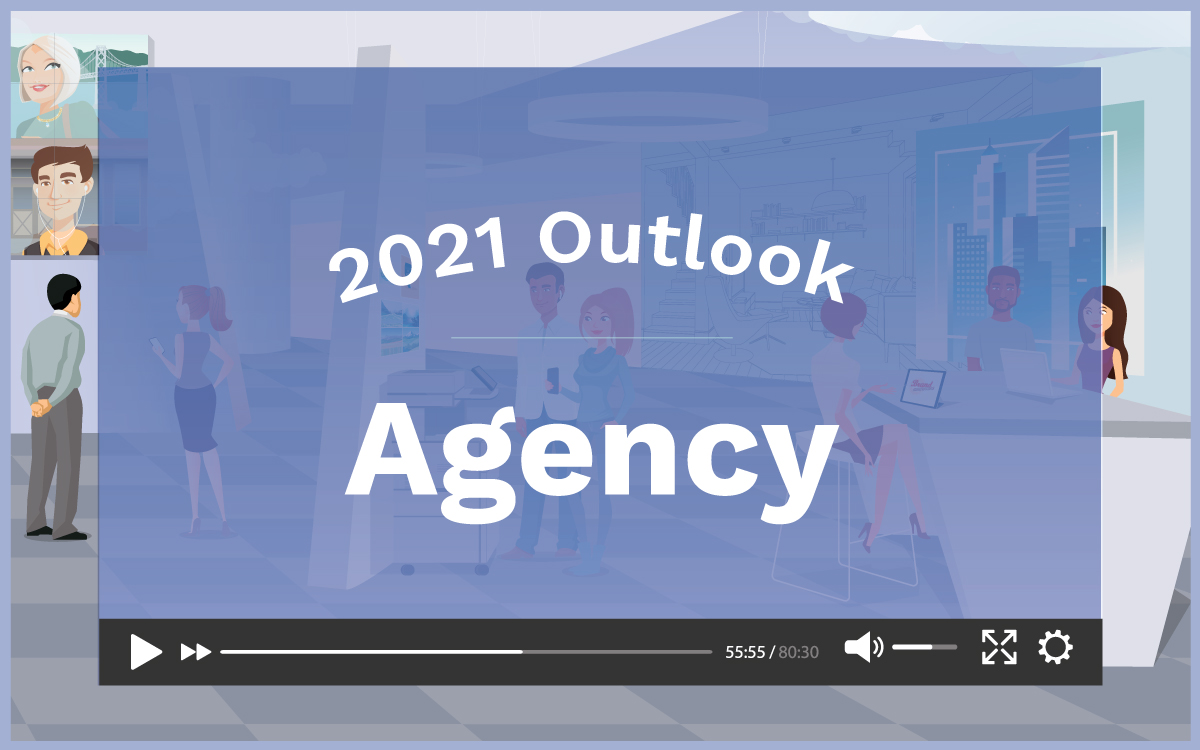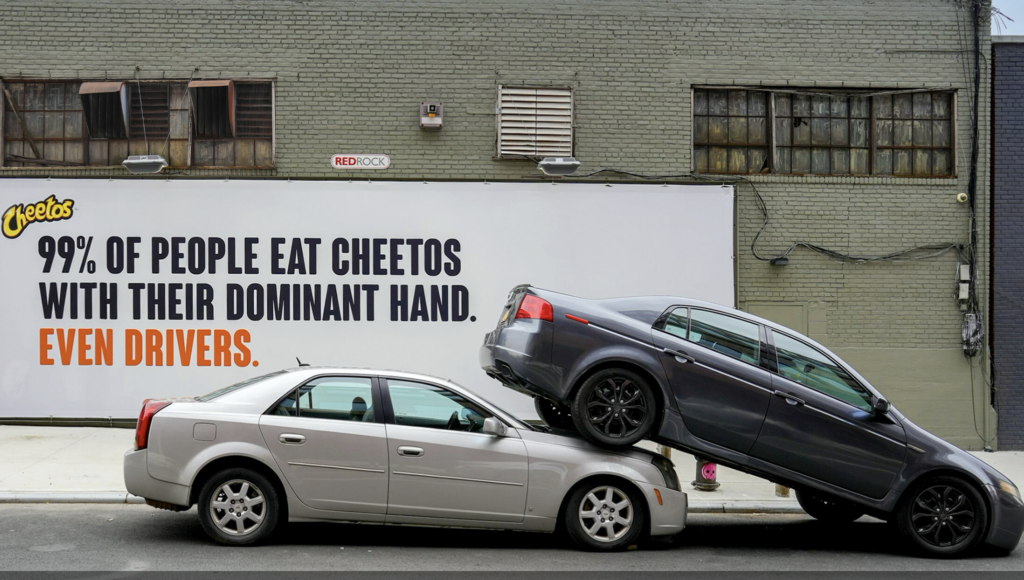Ad agencies experienced a world of upheaval in 2020 and many are still looking at where the pieces will fall as we head into 2021.
With tumbleweeds rolling down Madison Avenue as agency staffers work at home, many agencies are having to reinvent how they work. At the same time, brands have cut media budgets per data the iab and the in-housing trend is at an all-time high with 57% of global brands opening their own advertising firms within the last five years, accounting for $83 billion in spend, per the World Federation of Advertisers (WFA). These major transitions are expected to carry over into 2021.
“The agency business has evolved more in the last eight months than any of us could have ever imagined,” says Ryan Linder, Global Chief Marketing Officer, EVP at MDC Partners. “And 2021 will bring more change than we can ever anticipate. It was kind of like we were all pushed into an extreme episode of Naked and Afraid that none of us auditioned for. While we all experienced some ups and downs and a bit of chaos, the old adage that change is good is alive and well.”
“We’re all quickly realizing some of the practices our industry held dear were outdated and had we not been forced into evolving by necessity, we’d still be doing more of the same,” Linder continues. “And the same is never good. We evolved because we had to in 2020, and I believe we’ll refine those evolutions in 2021 because we’ll all be in a regular rhythm with them.”
Well-designed offices and trendy restaurants are no longer the laboratories for brainstorming great ideas, as creatives at agencies are now working from home and collaborating with teams and clients over Zoom, email and text chains while sitting in their kitchens and backyards. This new world work culture is likely to stick around, at least for the first half of 2021 before the COVID-19 vaccines are widely distributed.
“Gone are the rules of ‘you must work in the office to be successful’ or ‘we must think long and hard before we execute’ because 2020 no longer afforded us those luxuries,” says Linder. “The over-engineered nature of advertising has fallen by the wayside. Agencies and clients are all more decisive and fast moving because we have to be. Working from home has opened up incredible opportunities from a talent perspective that were unimaginable. And, ironically, the remote nature of how we are all working has created more of a human connection than ever before. Our industry is better for having lived through 2020 and will continue to rise in 2021.”
“The ability to not only plan for 2021, but also roll with it is paramount,” he continues. “Because as we all know, even the most well-intentioned plans will hang a hard left on you without notice. And we will be ready for it.”
Laurent Ezekiel, Global Chief Marketing & Growth Officer, WPP, concurred that creativity and agility has emerged from pandemic constraints and expects the need for agility. “During the pandemic, I’ve seen our agencies react to lockdown restrictions in the blink of an eye, stay across changing consumer attitudes and shopping habits, and deliver work in weeks that would usually take months,” says Ezekiel.
Focusing on client relationships was key in 2020 and agencies will likely maintain this strategy as we head into the new year.
“Our goal is to become our clients’ partners, not just their agency. We need to put our clients first by understanding the problems keeping them awake at night and making it easy and simple for them to access the breadth of skills and services they need,” Ezekiel continues. “We’re feeling optimistic about shaping the future of our industry. I think everyone can expect a lot more from agencies and brands next year – more understanding of what people really want from the brands in their lives, more accelerated change in digital transformation, and even more ideas that are brave.”
As the social movements of 2020 has shown, consumers care about social justice and racial equality and this is also a topic of great importance in the agency world. In fact, earlier this year WPP revealed to spend $10 million over the next three years to fund inclusion programs at its agencies to support a diverse workforce. Expect these kinds of trends to continue into 2021.
“Census data projects that by 2044, the majority of the U.S. population will be multicultural – with consumers under the age of 20 already demonstrating this shift,” says Lisa Torres, President, Publicis Media Cultural Quotient.
“While we’ve spent the past decades educating clients and partners about the tremendous purchasing power that diverse audiences wield, we need to move from ‘multicultural marketing’ to marketing to a multicultural world,” Torres says. “We, as marketers, need to take action to usher in the next era of bias-free and inclusive marketing. It needs to be a movement and not just a moment in time. To do this, agencies need to evaluate their advertising efforts to consider the margins of society they may be overlooking, as well as think of diversity, equity and inclusion as mainstays of their innovation and future-proofing efforts – touching everything from inclusive/accessible tech to products that service minority audiences.”
Advances in technology and innovation took place in 2020 and in 2021, these nice-to-haves will become table stakes.“In a year of unexpected events and continually shifting priorities, nearly every advertiser has had to recalibrate their marketing plans to meet new business challenges,” says Lauren Hanrahan, CEO of Zenith USA, Moxie and MRY. “This has given agencies the opportunity to push the boundaries of innovation, creativity and efficiency to help move clients toward recovery and growth.”
“Looking ahead to 2021 and beyond, it’s all about speed and flexibility,” continues Hanrahan. “As marketers look to stabilize and grow their business in a constantly changing marketplace, the agency partners who enable their clients to be more nimble and opportunistic and to adapt their marketing and operations in real-time will be the ones to succeed.”
While long term planning will not go away entirely, agencies that are able to thrive in a changing environment will succeed.
“Strategy must be relevant to up-to-the-nanosecond cultural insights and consumer behaviors, while staying true to the brand’s core offerings and values,” Hanrahan says. “Therefore, agencies with strong data and analytics capabilities will be best suited to helping brands quickly pivot to connect with consumers as their priorities – and lives – continue to change, as well as identify and expand audiences to grow their business. Looking to the future, the agency partners who make it as easy as possible for their clients to succeed will be the ones to come out ahead.”
Consumers are different than they were a year ago and this will impact how agencies develop campaigns and the ways in which they connect with consumers. Holding company Dentsu’s Dentsu Navigator, a monthly sentiment tracker, found that 46% of consumers are paying more attention now versus pre-COVID to what brands are doing to actively support individuals, communities and employees during this crisis. The data also found that 57% feel that brands have a responsibility to use their influence to stand up for social issues, speaking to the clear imperative for marketers to connect profit to purpose.
“We’ve entered a revolution of rising expectations,” says Jacki Kelley, CEO of Dentsu Americas. “Today’s consumers expect more from brands. Brands expect more from agencies. And, we all expect better for the world around us.”
“It’s incumbent on the ‘agency of the future’ to not only sense and respond to these expectations, but to anticipate and lead,” Kelley continues. “For dentsu, our path ahead is clear: we’re going to stay focused on consumers – studying their needs, expectations and changing behaviors – with greater investments on data and technology. How we deliver will be just as agile and innovative as what we deliver – with radical collaboration, being integrated by design and ensuring inclusion and equity permeate all that we do to champion meaningful progress. And finally, we need to embrace the notion that everything is marketing. In the spirit of being predictive vs. reactive, the agency of the future is rethinking supply chains, employee policies, conscious commerce and more. The sidelines are gone and we need to have agency not just be an agency.”




